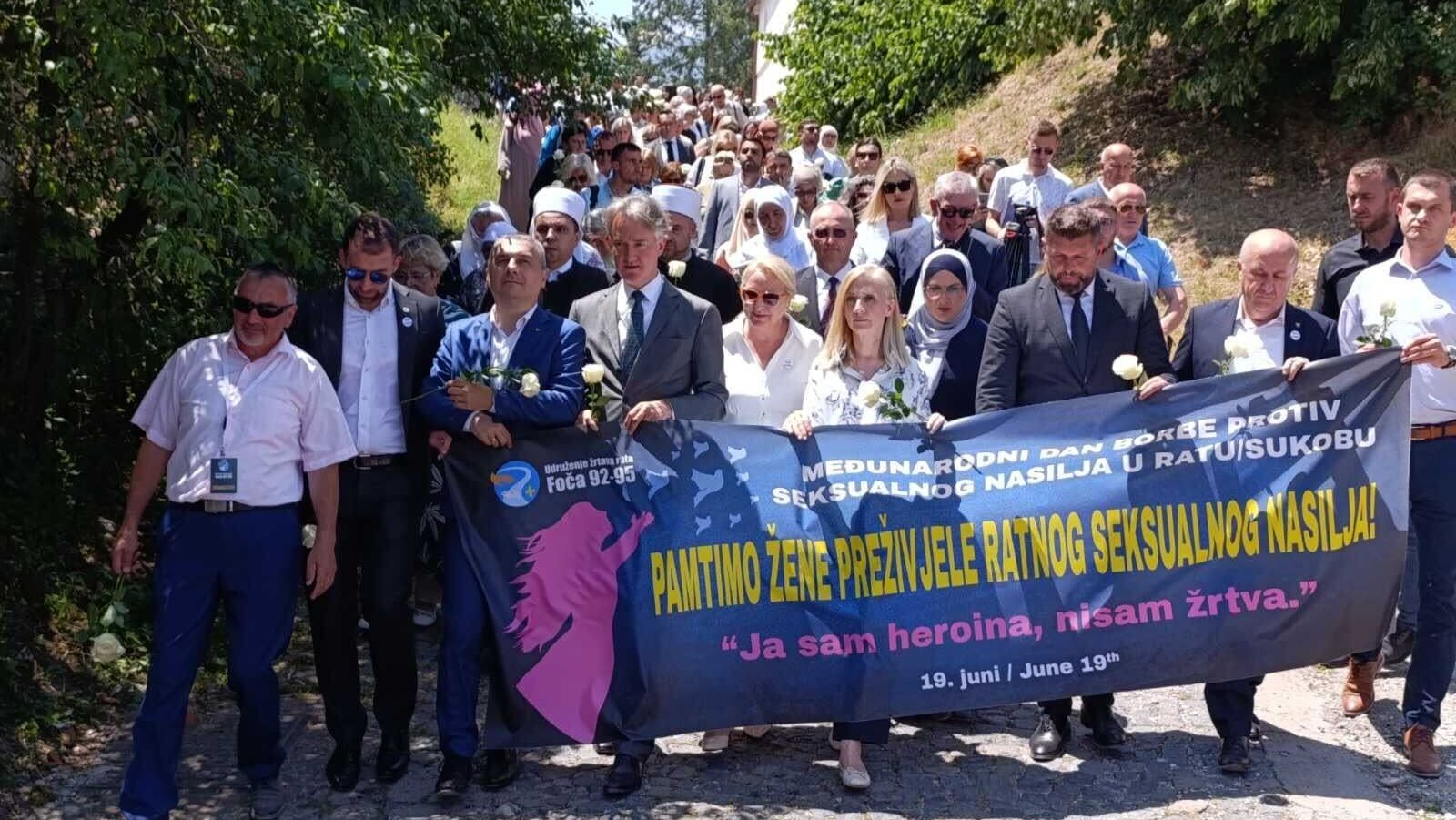This post is also available in: Bosnian
A commemoration was held on Thursday in the Bosnian town of Foca to mark the International Day for the Elimination of Sexual Violence against Women in War and pay tribute to the women who were sexually assaulted and killed during the 1992-95 war in Bosnia and Herzegovina.
The participants held a joint march of remembrance to the main square in Foca, where a silent vigil was held.
The walk then continued towards the Cehotina Bridge, where participants symbolically threw roses into the river in memory of women who were raped and murdered.
“Every woman needs to speak out – to gather the strength to speak out,” said Zehra Murguz, a victim of wartime rape from Foca.
Murguz said she decided to speak out on behalf of those who are no longer alive, and so that victims of sexual violence in wartime can be heard and justice can be achieved.
It has been estimated that between 20,000 and 50,000 people were raped during the war in Bosnia and Herzegovina.
The International Criminal Tribunal for the Former Yugoslavia sentenced four people to a total of 75 years in prison for wartime rape in the Foca area: Dragoljub Kunarac, Radomir Kovac, Zoran Vukovic and Dragan Zelenovic. The Bosnian state court has sentenced 15 people to a total of 188 years in prison for rape and other forms of wartime sexual violence.
According to the Hague Tribunal verdicts, women and girls were held captive at the High School Centre and Partizan sports hall in Foca, where they were raped, some of them multiple times.
During the summer of 1992, some were taken to various other locations and raped – among them a 12-year-old girl.
Some of the girls who were held in apartments were sold in February 1993 for several hundred German marks each.
The Foca 92-95 Victims’ Association launched an initiative several years ago to install a memorial plaque at the Partizan hall, where women were detained and raped.
Alen Muhic, who was born after his mother was raped during the war, attended the commemoration in Foca. Now a father, the 32-year-old campaigns for the rights of raped women and children born as a result of wartime rape.
“My mother was also raped here in the Partizan sports hall in 1992, and as a result of that wartime rape, I was born in Gorazde in 1993 was marked. Foca has become a symbol of systemic sexual violence and hundreds of women and girls,” Muhic said.
His biological mother abandoned him immediately after birth, and he was adopted and cared for by the Muhic family from Gorazde.
“I lived with people who gave me all the blessings that a family can provide, such as love,” he said.
But he noted that the issue is “still a taboo topic today” in Bosnia and Herzegovina, and that “unfortunately, that stigma was passed on to us children”.
Muhic has just authored a book, ‘I am Alen’, and he said that the stories of the suffering of women in Foca prompted him to go public – particularly the mothers who decided to keep children born after they were raped.
“I hope that as a society we have begun to break down prejudices and to break them down on a large scale,” he said.
